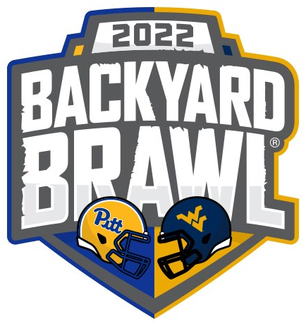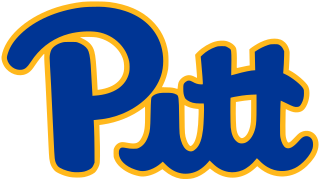Related Research Articles
Overtime is a method of determining a winner in an ice hockey game when the score is tied after regulation. The main methods of determining a winner in a tied game are the overtime period, the shootout, or a combination of both. If league rules dictate a finite time in which overtime may be played, with no penalty shoot-out to follow, the game's winning team may or may not be necessarily determined.
The 2005–06 NHL season was the 89th season of operation of the National Hockey League (NHL). This season succeeded the 2004–05 season which had all of its scheduled games canceled due to a labor dispute with the National Hockey League Players' Association (NHLPA) over the Collective Bargaining Agreement (CBA) between the League and its players. The season featured the first time that all 30 of its member teams played games on the same day, which happened the first day of the season, October 5, 2005.

Henry Clifford "Doc" Carlson was an American basketball coach and football player. He is a Naismith Basketball Hall of Fame inductee as the men's college basketball coach of his alma mater, the University of Pittsburgh, from 1922 to 1953. At Pitt he compiled a record of 367–247 record (.595). His 1927–28 team finished the season with a 21–0 record and was retroactively named the national champion by the Helms Athletic Foundation and the Premo-Porretta Power Poll; Carlson's Panthers would receive retroactive recognition as the Helms national champion for the 1929–30 season as well. Carlson also led Pitt to the Final Four in 1941. As a student at the university, Carlson was also a First Team All-American end on Pitt's football team under coach "Pop" Warner. Carlson also lettered in basketball and baseball.

The Backyard Brawl is an American college sports rivalry between the University of Pittsburgh Panthers and the West Virginia University Mountaineers. While historically a rivalry between the two schools' football programs, the term "Backyard Brawl" has also been used to refer to college basketball games played annually or semi-annually and may also be used to refer to other athletic competitions between the two schools. It is a registered trademark for both universities, and refers to the close proximity of the two universities, separated by 75 miles (105 km) along Interstate 79.

The Pittsburgh Panthers, commonly also referred to as the Pitt Panthers, are the athletic teams representing the University of Pittsburgh, although the term is colloquially used to refer to other aspects of the university such as alumni, faculty, and students. Pitt fields 19 university-sponsored varsity teams at the highest level of competitive collegiate athletics in the United States: the NCAA Division I Football Bowl Subdivision (FBS) for American football.
A one-game playoff, sometimes known as a pennant playoff, tiebreaker game or knockout game, is a tiebreaker in certain sports—usually but not always professional—to determine which of two teams, tied in the final standings, will qualify for a post-season tournament. Such a playoff is either a single game or a short series of games.

The Lafayette Leopards represent the 23 Division I varsity athletic teams of Lafayette College and compete in the Patriot League. There are 11 men's teams, 11 women's teams, and one co-ed team. The club teams also compete as the Leopards. Though not a varsity sport, crew and ice hockey are very competitive at Lafayette and play in intercollegiate club leagues.

The Pittsburgh Panthers men's basketball team is the NCAA Division I intercollegiate men's basketball program of the University of Pittsburgh, often referred to as "Pitt", located in Pittsburgh, Pennsylvania. The Pitt men's basketball team competes in the Atlantic Coast Conference (ACC) and plays their home games in the Petersen Events Center. The Panthers were retroactively recognized as the pre-NCAA tournament national champion twice by the Helms Athletic Foundation and once by the Premo-Porretta Power Poll. Pitt has reached one Final Four, received 15 First Team All-American selections, appeared in 27 NCAA tournaments through the 2022–23 season, and has recorded 1,674 victories against 1,232 losses since their inaugural season of 1905–06.
The 1993–94 Florida Panthers season was the Panthers' first season. Blockbuster Video magnate H. Wayne Huizenga was awarded an NHL franchise for his native Miami in 1992. The team played at the Miami Arena, and its first major stars were New York Rangers goaltender castoff John Vanbiesbrouck, rookie Rob Niedermayer, and Scott Mellanby, who scored 30 goals during the regular season.
The 1994–95 Florida Panthers season was the Panthers' second season. For the second straight year, they missed the playoffs by just one point. While the team tied for 6th in the league in goaltending behind the solid tandem of John Vanbiesbrouck and Mark Fitzpatrick and finished first in most shutouts (6), it finished last in the league in scoring with 115 goals and was shut out 5 times. The Panthers tied the Montreal Canadiens and the Ottawa Senators for fewest shorthanded goals scored (1).

Pittsburgh Panthers women's volleyball is the NCAA Division I intercollegiate volleyball program of the University of Pittsburgh, often referred to as "Pitt", located in Pittsburgh, Pennsylvania. The Pitt volleyball team competes in the Atlantic Coast Conference (ACC) and plays their home games in Fitzgerald Field House. Since the founding of the volleyball program in 1974, the Panthers have had a winning season all but four years, have one of the nation's top all-time winning percentages, have appearances in 23 national championship tournaments, and have won conference championships in 17 different seasons including eleven as a member of the Big East Conference and six since joining the ACC.

The Davenport Panthers are the athletic teams that represent Davenport University, located in Caledonia Township, Michigan, in intercollegiate sports as a member of the NCAA Division II level of the National Collegiate Athletic Association (NCAA), primarily competing in the Great Lakes Intercollegiate Athletic Conference (GLIAC) for most of its sports as a provisional member since the 2017–18 academic year. The Panthers previously competed in the Wolverine–Hoosier Athletic Conference (WHAC) of the National Association of Intercollegiate Athletics (NAIA) from 2005–06 to 2016–17.

The 2010–11 Pittsburgh Panthers men's basketball team represented the University of Pittsburgh in the 2010–11 NCAA Division I men's basketball season. They were led by eighth-year head coach Jamie Dixon, in his twelfth total year at the university. The team played its home games in the Petersen Events Center in Pittsburgh, Pennsylvania and are members of the Big East Conference. They finished the season 28–6, 15–3 in Big East play to capture the regular season conference championship. As the 1 seed in the 2011 Big East men's basketball tournament, they were upset by 9 seed Connecticut in their first tournament game. They received an at-large bid in the 2011 NCAA Division I men's basketball tournament as the 1 seed in the southeast region. They defeated 16 seed UNC Asheville in the first round before being upset by 8 seed Butler in the second round.
The 1979–80 Princeton Tigers men's basketball team represented Princeton University in intercollegiate college basketball during the 1979–80 NCAA Division I men's basketball season. The head coach was Pete Carril and the team captain was John W. Rogers, Jr. The team played its home games in the Jadwin Gymnasium on the University campus in Princeton, New Jersey. The team was the co-champion of the Ivy League, but lost a one-game playoff and failed to earn an invitation to either the 1980 NCAA Men's Division I Basketball Tournament or the 1980 National Invitation Tournament.

The Eastern Intercollegiate Conference (EIC) was an athletic conference in the National Collegiate Athletic Association in the United States. The conference sponsored men's college basketball and existed from 1932 to 1939, with teams in the District of Columbia, Pennsylvania, and West Virginia.

The 2012 Stanley Cup playoffs was the playoff tournament of the National Hockey League (NHL) for the 2011–12 season. It began on April 11, 2012, after the conclusion of the regular season, and ended on June 11, with the Los Angeles Kings defeating the New Jersey Devils in six games in the Stanley Cup Finals to win their first Stanley Cup championship. Kings goaltender Jonathan Quick, having recorded a 1.41 goals against average, was named the Conn Smythe Trophy winner as the playoffs' most valuable player.

The 1938–39 Georgetown Hoyas men's basketball team represented Georgetown University during the 1938–39 NCAA college basketball season. Elmer Ripley, who had coached Georgetown previously from 1927 to 1929, returned for his second of three stints as head coach; it was his third season overall as the Hoyas' head coach. The team was a member of the Eastern Intercollegiate Conference (EIC) and played its home games at Tech Gymnasium on the campus of McKinley Technical High School in Washington, D.C. The team finished as conference co-champion, with a record of 6-4 in the EIC and 13-9 overall. It had no postseason play.
The Ivy League men's basketball tournament is the postseason conference tournament in men's basketball for the Ivy League. It was first held in 2017, and is held alongside the Ivy women's tournament, also introduced in 2017, at the same venue. The overall event is currently marketed as Ivy Madness. The Ivy League was the last NCAA Division I conference without a postseason tournament.
References
- 2008–09 University of Pittsburgh Men's Basketball Media Guide